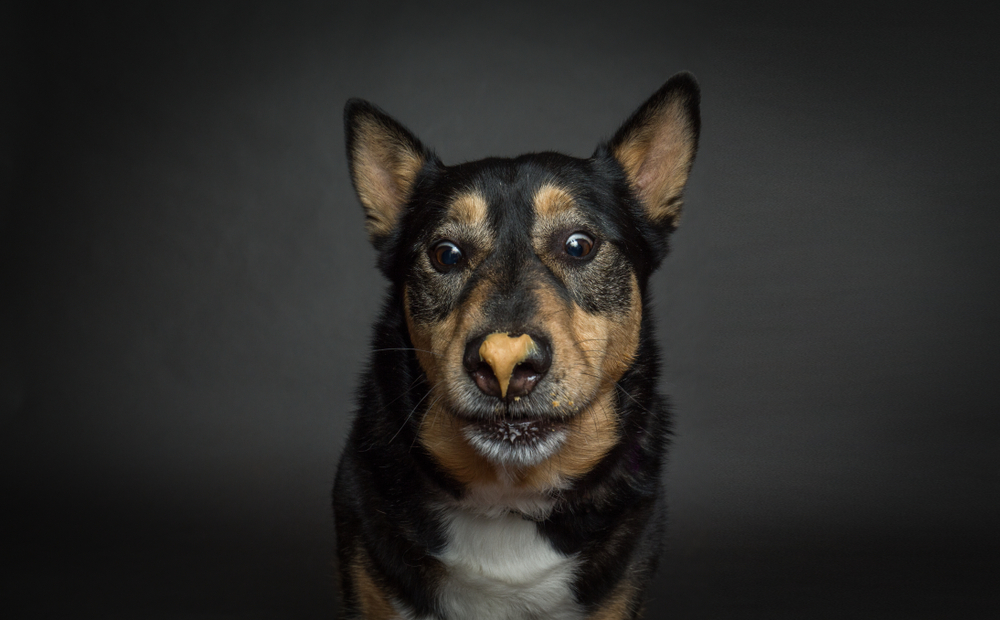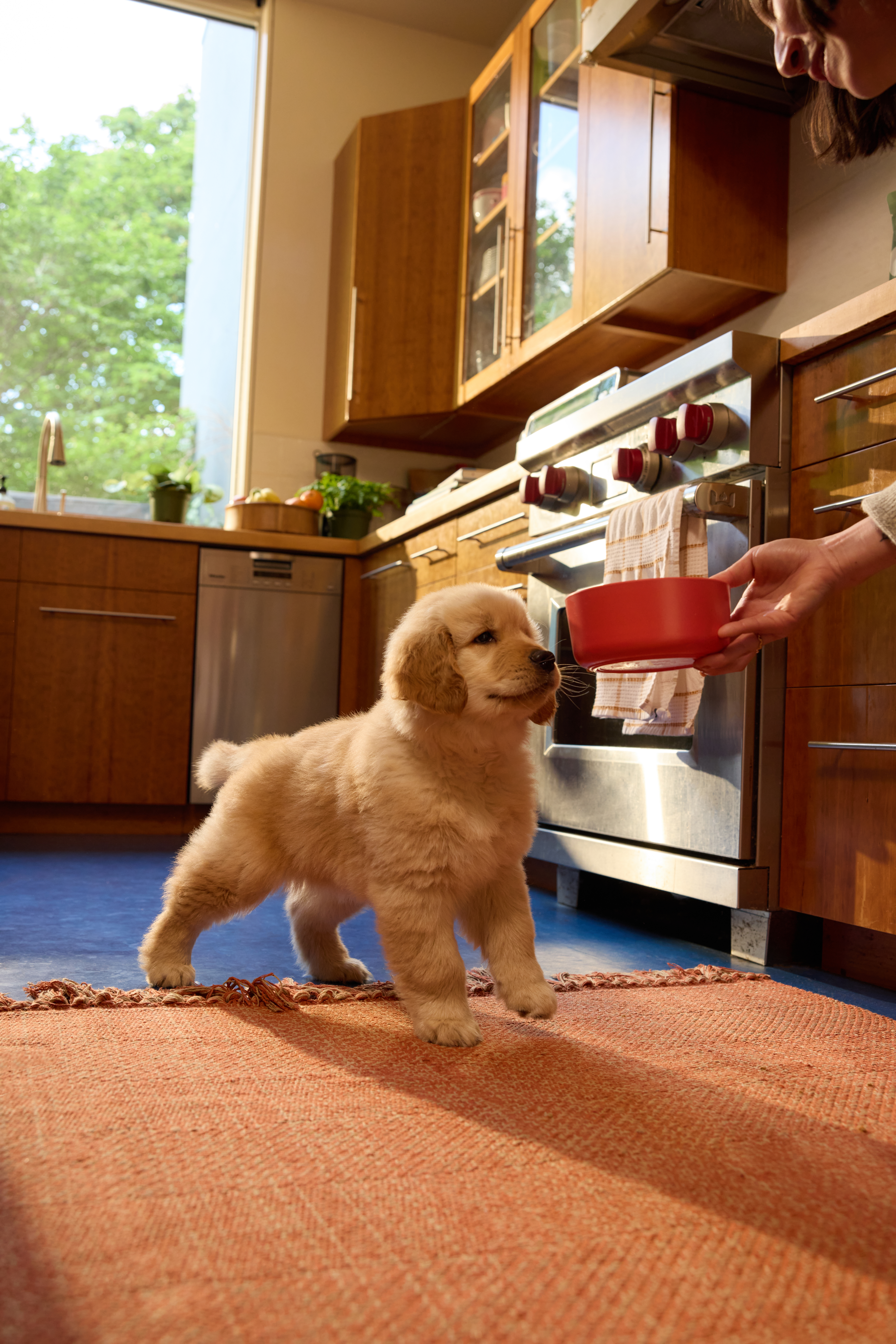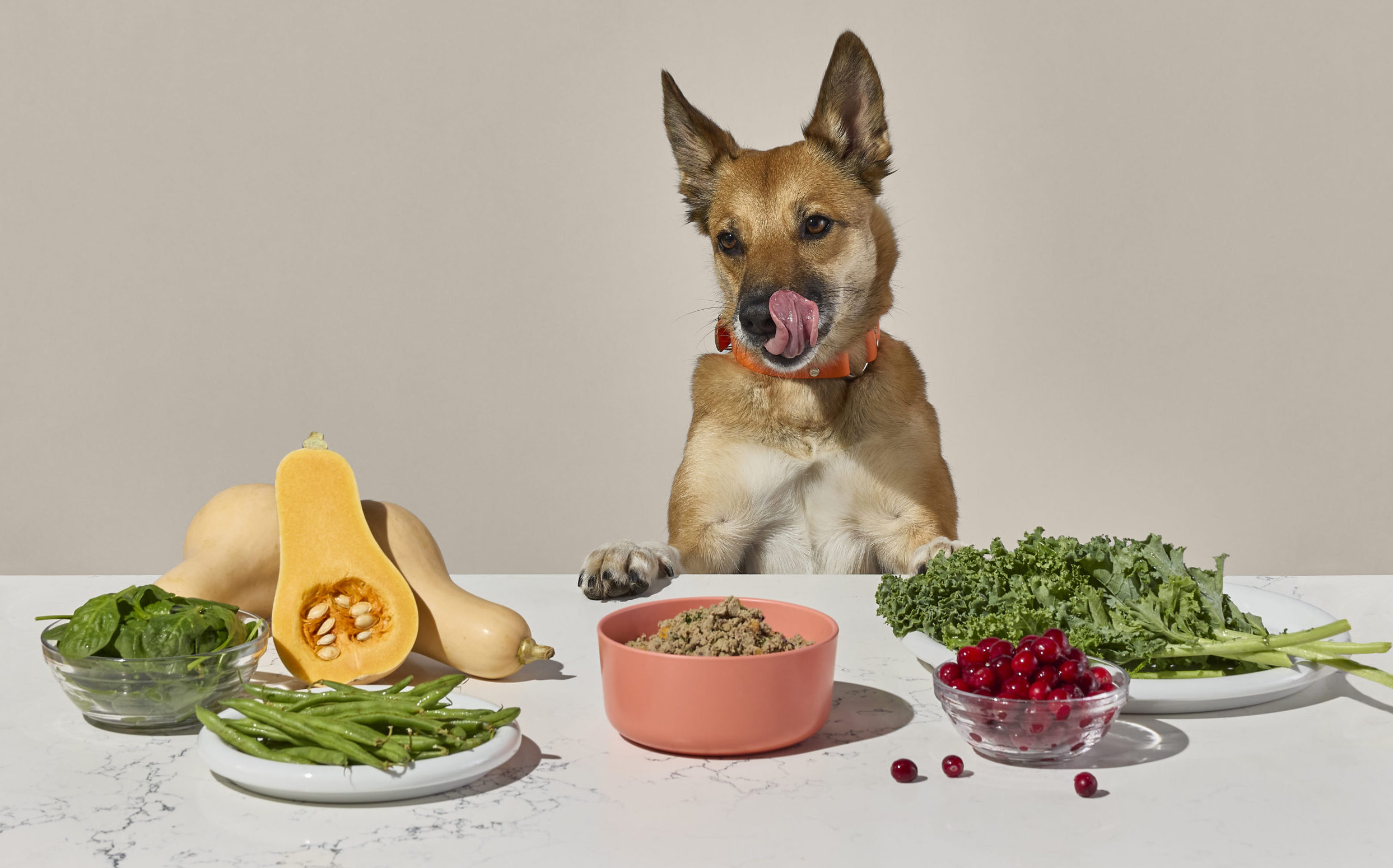Hey Ollie blog readers! We’re offering you an exclusive 60% OFF your starter box! Try now!
Eggs can be a healthy, protein-rich snack for dogs—but only when prepared the right way. So, can dogs eat eggs? Yes, most dogs can enjoy eggs as part of a balanced diet. Eggs are packed with essential nutrients like protein, healthy fats, and vitamins that support skin, coat, and muscle health. But portion size and preparation matter. Here’s what to know before adding eggs to your dog’s bowl.
Can Dogs Eat Eggs?
Yes, dogs can eat eggs, and most pups love them. Eggs are a safe and nutritious food for dogs when served fully cooked and without added oils, butter, or seasoning. In fact, eggs have been a part of many canine diets for decades thanks to their rich protein content and digestibility.
The American Kennel Club (AKC) confirms that cooked eggs are safe for dogs and can be a great source of nutrition when offered in moderation. Raw eggs, however, come with risks. They can carry Salmonella bacteria and contain avidin, an enzyme that may interfere with biotin absorption—both of which can cause digestive issues or nutritional imbalances.
Before adding eggs to your dog’s bowl, keep these tips in mind:
- Always cook eggs thoroughly (boiled or scrambled is best)
- Skip the salt, butter, and spices
- Start with small portions and watch for any signs of allergy or stomach upset
For dogs with sensitive stomachs, cooked eggs can actually help soothe digestion. Just be sure they’re introduced gradually and not used as a meal replacement.
Are Eggs Good for Dogs?
Yes, eggs are good for dogs—as long as they’re served cooked and in proper portions. Eggs are considered a complete protein, meaning they contain all nine essential amino acids your dog needs for healthy body function. They also provide vitamins and minerals that support everything from skin health to immune response.
Here’s a quick breakdown of what one large cooked egg offers:
- 6g of protein – supports muscle maintenance and growth
- 5g of healthy fat – important for energy and coat health
- Vitamins A, D, E, and B12 – essential for immune support, vision, and nerve health
- Iron, selenium, and folate – boost red blood cell function and cellular repair
- Choline – supports brain development and liver function
According to PetMD, eggs can also help improve coat shine and reduce dry skin, thanks to their fatty acid content. This makes eggs a particularly great option during seasonal changes or for dogs prone to skin issues.
When used as a treat, topper, or occasional meal booster, eggs add both flavor and nutritional value. Just remember to consider the calories—one large egg has about 70 calories—so adjust your dog’s daily intake accordingly.
The Benefits of Eggs for Dogs
Eggs contain high-quality protein that’s digestible for dogs. In Dog: The Definitive Guide for Dog Owners, Bruce Fogle, DVM, MRCVS, explains, “High-quality protein contains a good balance of all ten essential amino acids needed for the body’s biologically vital compounds.” This is why it’s healthiest for your dog to eat animal protein like meat and eggs.
Eggs for dogs are also a great source of riboflavin, selenium, and fat-soluble vitamins A, D, E, and K. These nutrients are critical for maintaining a healthy immune system and warding off disease. Riboflavin also encourages the production of red blood cells, while helping to metabolize carbohydrates and fats. Selenium is important for thyroid function and contributes to a dog’s silky, shiny coat.
Here are some of the most common health benefits of eggs for dogs:
1. High-Quality Protein for Muscle Maintenance
Eggs are one of the most digestible sources of animal protein for dogs. This protein helps maintain lean muscle mass, supports tissue repair, and keeps energy levels steady. According to Dr. Bruce Fogle, DVM,
“High-quality protein contains a good balance of all ten essential amino acids needed for the body’s biologically vital compounds.”
That amino acid profile makes eggs an excellent addition to any dog’s diet—especially for active dogs or those recovering from illness.
2. Riboflavin for Metabolism and Energy
Riboflavin (vitamin B2) helps the body convert food into fuel. It supports red blood cell production and aids in breaking down fats and carbohydrates, helping your dog stay energized and metabolically balanced.
Dogs with low riboflavin may show signs of fatigue or poor coat quality—adding eggs can help fill that nutritional gap.
3. Selenium for Thyroid and Immune Health
Selenium plays a crucial role in thyroid hormone regulation and immune defense. It also helps protect cells from oxidative damage. A healthy amount of selenium in your dog’s diet can improve immune resilience and reduce inflammation.
This trace mineral is also linked to skin health and coat shine—great news for pups with dry or itchy skin.
4. Fat-Soluble Vitamins for Immune Support
Eggs provide important fat-soluble vitamins, including A, D, E, and K:
- Vitamin A supports vision and immune function
- Vitamin D helps regulate calcium for strong bones
- Vitamin E acts as an antioxidant, protecting cells
- Vitamin K supports blood clotting and heart health
These vitamins are essential for long-term health and are often lacking in heavily processed dog foods.
5. Choline for Brain and Liver Function
Choline is a lesser-known nutrient found in egg yolks. It supports brain development, nerve function, and liver health. Puppies and senior dogs, in particular, benefit from choline’s role in cognition and memory.
Feeding cooked eggs a few times per week can be an easy way to support your dog’s neurological and metabolic systems.
How To Safely Serve Eggs To Dogs
If you’re ready to add eggs to your dog’s diet, preparation matters. Serving eggs the wrong way—like raw, over-seasoned, or fried in oil—can lead to digestive upset or even health risks. The good news? Safely preparing eggs for your pup is simple and only takes a few minutes.
Follow these vet-approved tips to make sure your dog gets the benefits of eggs without the risks:
1. Always Cook the Eggs
Raw eggs are not recommended for dogs. They may contain harmful bacteria like Salmonella and the enzyme avidin, which can interfere with biotin absorption over time.
Stick with fully cooked eggs to kill bacteria and make nutrients more bioavailable. Cook them until both the white and yolk are firm—no runny or undercooked parts.
2. Avoid Seasoning and Additives
Dogs don’t need salt, pepper, oil, butter, or spices. Ingredients like garlic or onion—sometimes found in “fancy” scrambled eggs—are toxic to dogs.
Serve plain eggs only with no extras. Even a pinch of seasoning can upset a dog’s stomach or worse, lead to toxicity over time.
3. Choose Dog-Safe Cooking Methods
The healthiest ways to cook eggs for dogs are:
- Boiled – Hard or soft, with the shell removed
- Scrambled – In a nonstick pan without oil or butter
- Poached – No vinegar or added salt
Avoid fried eggs or any preparation with added fat, which can cause stomach upset or pancreatitis in sensitive dogs.
4. Control Portion Sizes
Eggs are nutrient-dense but also calorie-rich—about 70 calories per large egg. Use them as a topper or treat, not a full meal.
Egg serving size suggestions by dog weight:
- Small dogs (under 20 lbs): ¼ to ½ egg
- Medium dogs (20–50 lbs): ½ to 1 egg
- Large dogs (50+ lbs): 1 egg or slightly more
Always reduce calories from your dog’s main meals to balance things out.
5. Introduce Eggs Gradually
If your dog has never had eggs before, start with a small amount. Monitor for any signs of food sensitivity like itching, loose stool, or gas.
If your pup tolerates eggs well, you can add them into their routine a couple of times per week.
Can Dogs Eat Raw Eggs?
While most forms of eggs are healthy for dogs, raw eggs for pups are up for debate. Some experts say raw eggs, especially the yolks, are safe, however, all raw eggs carry a risk of salmonella. The danger is roughly equal to eating raw cookie dough, but it’s helpful to keep in mind that, according to the CDC, there are 1.2 million cases of salmonella in the United States each year. There’s evidence to show that dogs who eat raw food have a higher risk for infection and that dogs can transfer the disease to their owners, according to this study from the FDA.
The second issue with feeding dogs uncooked eggs is that raw egg whites contain the protein avidin. In moderation, there’s very little danger, but if avidin is part of a dog’s daily diet, it can interfere with the function of biotin. If you want to feed your dog raw eggs, it’s you stick to yolks only.
Can Dogs Eat Scrambled Eggs?
In general, cooked eggs are healthy for dogs and don’t carry the same risks as raw eggs. However, scrambled eggs aren’t ideal for dogs as the oil or butter used in preparation can cause an upset stomach. (Note: In very low quantities (a teaspoon per day), olive oil and sunflower oil can be healthy.)
Can Dogs Eat Fried Eggs?
Fried eggs are okay, but not optimal. The same issue with scrambling exists with fried eggs: the fat used to fry can backfire.
Can Dogs Eat Boiled Eggs?
Bingo! Boiled or poached eggs are the best way to serve eggs to your dogs. And we bet your pup will love them prepared this way! Ollie’s Chicken Goodness Recipe includes lightly cooked eggs for exactly this reason: Eggs encourage both good health and good eating.
One last caveat: Eggs are high in protein and healthy fats, which means they are best enjoyed by your dog in moderation.
Tagged As:

The nutrition your dog needs,
the food they want.

Enjoying our articles? Subscribe our Newsletters and get new articles directly to your inbox
You might also like
21 July 2025
6 MINS READ
Can Dogs Eat Nuts? Which Nuts Are Safe & Serving Guide
Can dogs have nuts? Some nuts are fine in moderation, but others can cause serious harm. This quick guide breaks down which nuts are safe for dogs, which to skip, and how to feed nut butters respon…
18 July 2025
4 MINS READ
New Puppy Diet Recommendations for Healthy, Happy Growth
As a new pup parent, one of the biggest ways you can support your puppy’s long-term health is by providing the right nutrition. A puppy’s dietary needs are different from an adult dog’s, and…
by Ollie Pets
18 July 2025
5 MINS READ
How Human-Grade Dog Food Benefits Your Pup’s Health and Happiness
You’ve likely heard the term “human-grade” dog food, but what does it really mean, and is it worth it? Choosing human-grade food can be a significant investment for your dog’s long-term he…
by Ollie Pets







